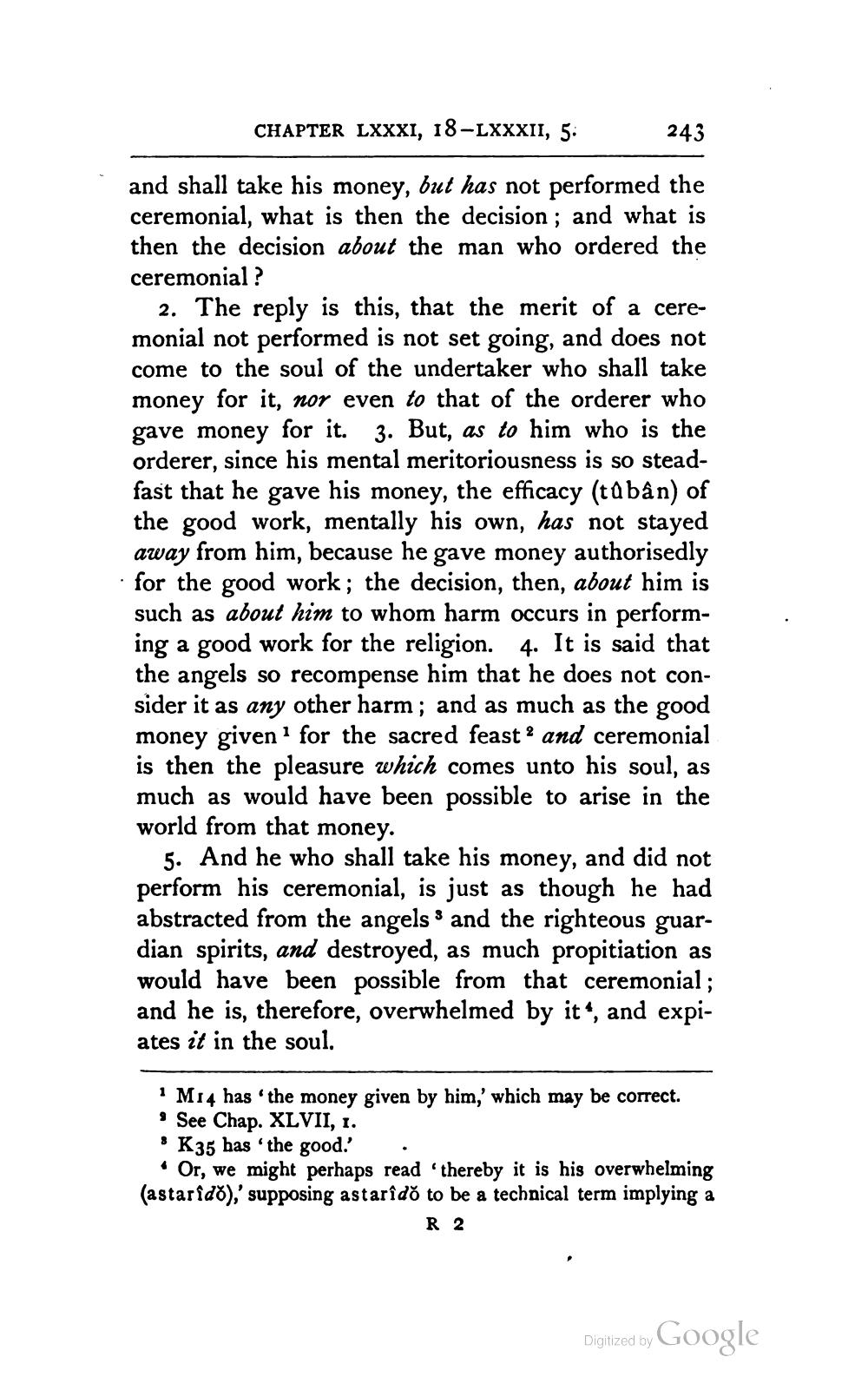________________
CHAPTER LXXXI, 18-LXXXII, 5.
243
and shall take his money, but has not performed the ceremonial, what is then the decision; and what is then the decision about the man who ordered the ceremonial ?
2. The reply is this, that the merit of a ceremonial not performed is not set going, and does not come to the soul of the undertaker who shall take money for it, nor even to that of the orderer who gave money for it. 3. But, as to him who is the orderer, since his mental meritoriousness is so steadfast that he gave his money, the efficacy (ta bân) of the good work, mentally his own, has not stayed away from him, because he gave money authorisedly · for the good work; the decision, then, about him is such as about him to whom harm occurs in performing a good work for the religion. 4. It is said that the angels so recompense him that he does not consider it as any other harm; and as much as the good money given for the sacred feast? and ceremonial is then the pleasure which comes unto his soul, as much as would have been possible to arise in the world from that money.
5. And he who shall take his money, and did not perform his ceremonial, is just as though he had abstracted from the angels : and the righteous guardian spirits, and destroyed, as much propitiation as would have been possible from that ceremonial; and he is, therefore, overwhelmed by it“, and expiates it in the soul.
* M14 has the money given by him,' which may be correct. • See Chap. XLVII, 1.
K35 has 'the good. . • Or, we might perhaps read 'thereby it is his overwhelming (astarid),' supposing astarîdo to be a technical term implying a
R 2
Digitized by Google




